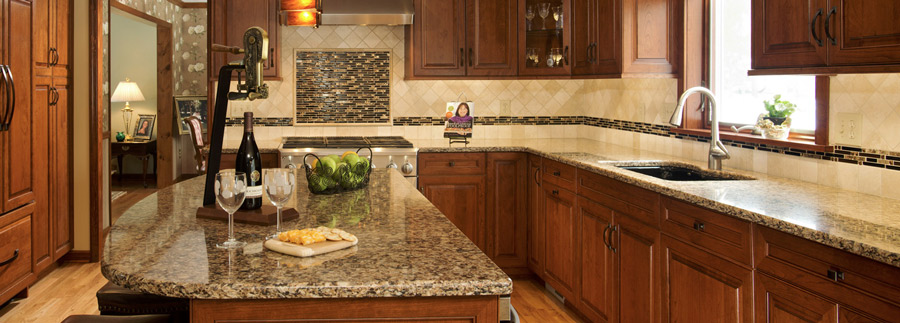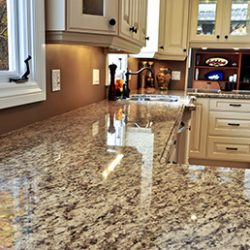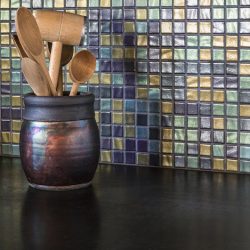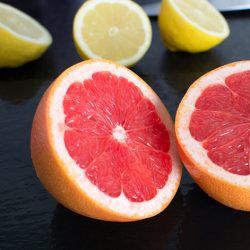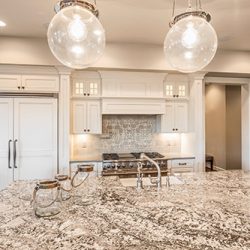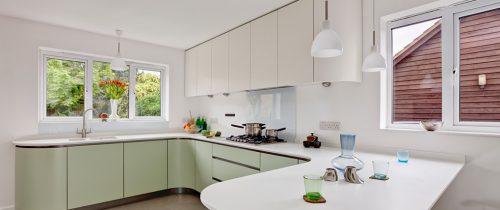 We’ve gone over the differences in natural stone countertops before, now we’re talking about “Solid Surfacing Material” (SSM). While there may not be as many differences between brands of SSM, we’ll talk about what SSM is and what materials are commonly used in its creation.
We’ve gone over the differences in natural stone countertops before, now we’re talking about “Solid Surfacing Material” (SSM). While there may not be as many differences between brands of SSM, we’ll talk about what SSM is and what materials are commonly used in its creation.
What is “Solid Surfacing Material?”
A man-made material, solid surface is made up of acrylic or polyester resins, various minerals used as a filler with pigments added in. The result of this mixture is a completely homogeneous and non-porous surface that comes in a large variety of colors. With SSM you can get the look of natural stone without the hassle.
Solid Surfacing countertops can easily be made to fit your cabinet configuration, making it a perfect choice for seamless countertop installations. Solid surfacing is popular in hospitals – the easy to maintain, non porous material with seamless construction means there are less crevices for dirt and bacteria to hide in.
Wear and tear will show on SSM countertops eventually. While the surface itself may burn, get scratched or stain, owners are able to buff out surface markings. Deeper cuts and gouges can be filled if needed. It should be mentioned though that some darker/ highly pigmented surfaces will over time show scratches. Cutting boards are highly recommended if you decide to go with a SSM countertop.
Acrylic VS Polyester
Acrylic
- Beware of solvents (Acetone, paint thinners)- They will damage the surface
- Low gloss surface, less visual depth than polyester
- Can be “thermoformed” into intricate shapes
Polyester
- High gloss surface
- More brittle (An issue for fabrication and installation, not so much for the user)
- Can handle higher temperatures
- More difficult to guarantee solid seams
Acrylic currently makes up a large percentage of products on the market today. Still, if you would prefer a polyester based material there are still some options out there for you.
We hope you’ve found this informative, next time we’ll cover wood and concrete countertops.


